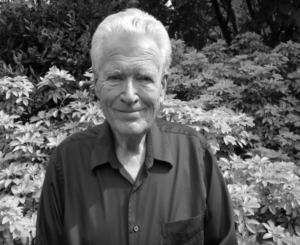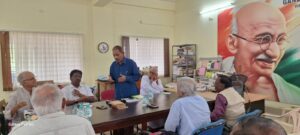The Special Rapporteur’s 2013 Interim Report on Freedom of Religion and Belief was delivered on 7 August 2013 at the 68th Session of the General Assembly.
Theme: Intersection of freedom of religion or belief and equality between men and women.
Convention on Elimination of All forms of Discrimination against Women
- Article 5 – States Parties shall take all appropriate measures:
- To modify the social and cultural patterns of conduct of men and women, with a view to achieving the elimination of prejudices and customary and all other practices which are based on the idea of the inferiority or the superiority of either of the sexes or on stereotyped roles for men and women;
[17] “Many [human rights] violations stem from stereotypical gender roles which are frequently also defended in the name of religion or belief…Gender stereotypes and stereotypical pictures of believers often exist in tandem, a problem disproportionately affecting women from religious minorities”
[33] “…the potential for synergies between freedom of religion or belief and promoting women’s right to equality remains systematically underexplored.”[28] “empowering groups who traditionally experience discrimination, including women and girls, freedom of religion or belief can serve as a normative reference point for questioning patriarchal tendencies as they exist in different religious traditions. This can lead to more gender-sensitive readings of religious texts and far-reaching discoveries in this field… This accounts for the possibility of direct synergies between freedom of religion or belief on the one hand and policies for promoting the equal rights of women on the other.”
Harmful Practices
[30] “…the Special Rapporteur notes with concern that such harmful practices as female genital mutilation, forced marriage, honour killings, enforced ritual prostitution or denying girls their rights to education are defended in the name of religious traditions. Such defence is frequently controversial within the various religious communities themselves, and many followers of the respective communities (possibly their overwhelming majority) may be heavily opposed to such practices and also voice their opposition publicly. If those still performing harmful practices try to invoke religious freedom for their actions, this must become a case for restricting the freedom to manifest one’s religion or belief. The Special Rapporteur would like to reiterate what his predecessor pointed out in her final report to the General Assembly: “The Special Rapporteur strongly believes that the mandate needs to continue highlighting discriminatory practices that women have had to suffer over centuries and continue to do so, sometimes in the name of religion or within their religious community. It can no longer be taboo to demand that women’s rights take priority over intolerant beliefs used to justify gender discrimination.” (see A/65/207, para. 69).”Forced Conversion and Forced Marriage
[34] “…antagonistic views of the two human rights norms would further diminish the prospects of persons whose human rights problems fall in the intersection of freedom of religion or belief and equality between men and women. Indeed, human rights violations in the intersection of the two norms are a reality for many women. One obvious example is forced conversion in combination with forced marriage. In a number of countries, women or girls from religious minorities unfortunately run the risk of being abducted, with the purpose of forcing them to convert to the mainstream religion, often in connection with an unwanted marriage.”To read full report, A/68/290 – see here.
- United Nations Special Rapporteur on freedom of religion or belief, Heiner Bielefeldt, addressing the UN General Assembly, 13 Oct 2013,
See media release here, titled: Harmful practices inflicted on women or girls can never be justified in the name of freedom of religion or belief
- High-level Launching in Geneva of the Rabat Plan of Action, 21 February 2013: http://www.ohchr.org/EN/NewsEvents/Pages/TheRabatPlanofAction.aspx
- The Rabat Plan of Action on the prohibition of advocacy of national, racial or religious hatred that constitutes incitement to discrimination, hostility or violence (see A/HRC/22/17/Add.4)
- The Rabat Plan of Action was jointly adopted by experts, including the:
- Special Rapporteur on Freedom of Opinion and Expression,
- Special Rapporteur on Freedom of Religion or Belief, and the,
- Special Rapporteur on Racism, Racial Discrimination, Xenophobia and Related Intolerance.
- UN Special Rapporteur on Freedom of Religion or Belief’s Country Visits in 2013:
- Sierra Leone, 30 June to 5 July 2013 [LINK]
- Jordan 2 – 12 September 2013
- SRs requests to Governments for future country visits, include:
- Bangladesh,
- Indonesia,
- Kazakhstan,
- Uzbekistan; and,
- Vietnam.
- UN Special Rapporteur on Freedom of Religion or Belief’s Annual Interactive Dialogue with the General Assembly 67th Session, 25 October 2012, New York, on the Right to Conversion, see full statement
- Allegation Letters and Urgent Appeals: The SR sends allegation letters and urgent appeals to States seeking clarification on credible allegations of incidents and governmental action possibly incompatible with the provisions of the Declaration on the Elimination of All Forms of Intolerance and of Discrimination based on Religion (see declaration established under General Assembly resolution 36/55.
- Since this mandate was established, there have been more than 1,290 allegation letters and urgent appeals send to a total of 130 States.
- Status of Communications received between 1 June 2012 and 28 Feb 2013, and replies received from Governments before 30 April 2013. See reports A/HRC/22/67 [LINK] and A/HRC/23/51
Compilation/Summary of Communications to States on FORB:
- USA 34/2012
- 20/12/2012 United States of America JUA
- Mandates: Arbitrary detention; Freedom of expression; Freedom of religion;
- Summary of the allegation transmitted: Alleged possible trial of a conscientious objector. According to the information received, Ms. Kimberly Rivera left the army without authorization while on leave from deployment to Iraq in early 2007. Ms. Rivera went to Canada after she made a decision that she could no longer participate in the war in Iraq or any other conflict for moral reasons. When she was in Canada, Ms. Rivera spoke out publicly about her objection to the conflict in Iraq. It has been reported that Ms. Rivera has been detained by the US military authorities since 20 September 2012 and may be tried before a court martial. If convicted, Ms. Rivera could face up to five years of imprisonment.
- State Response, 08/04/2013
- BGD 2/2013
- 18/01/2013 Bangladesh
- Mandates: Freedom of expression; Freedom of religion; Human rights defenders;
- Summary of the allegation transmitted: Alleged attack on, and stabbing of, a prominent blogger in Dhaka. According to the information received, on 14 January 2013, Mr. Asif Mohiuddin was attacked by three unidentified men as he was leaving his office in Uttara district. He was stabbed several times in the neck and back and was in critical condition at the time of sending the communication. Mr. Mohiuddin is a prominent blogger, whose Bengali language blog ―Almighty only in name, but impotent in reality‖ is reportedly one of the most visited websites in Bangladesh. In his blog, Mr. Mohiuddin, who is an atheist, frequently criticized religion, and also provided commentaries on free speech and other human rights issues.
- State Response, 29/01/2013
- IRN 4/2013
- 28/01/2013 Iran (Islamic JUA Republic of)
- Mandates: Arbitrary detention; Freedom of religion; Independence of judges and lawyers; Iran; Torture;
- Summary of the allegation transmitted: Alleged detention and attacks against a Christian on allegations of committing ―actions against the national security of Iran‖. According to th information received, on 26 September 2012, Mr. Saeed Abedinigalangashi, an Iranian-US citizen, was arrested in the Islamic Republic of Iran before catching a flight back to the United States of America, where he resides. He has been held in Evin prison, Iran, ever since. His lawyer was denied access to the detainee and his file, and no information was provided about the charges brought against him. On 14 January 2012, his lawyer was reportedly informed that Mr. Abedinigalangashi‘s trial would start on 21 January 2013, and allowed access to his file. Mr. Abedinigalangashi has allegedly been held in solitary confinement for four weeks and subjected to beating while in prison. Mr Abedinigalangashi was previously summoned to court in 2005 on account of his religious activity and was detained in 2009. He was released after agreeing to cease his involvement with the ̳house churches‖.
- State Response: No reply.
- KOR 1/2012
- 17/04/2012 Republic of JAL Korea
- Mandates: Freedom of religion; Independence of judges and lawyers; Torture;
- Summary of the allegation transmitted: Alleged deportation and secret detention in Uzbekistan. According to the information received, Mr. X fled to the Republic of Korea in 2008 to escape religious persecution in Uzbekistan. Reportedly, on 7 February 2012, he was arrested on the basis of alleged illegal entry and stay in the country and was taken to Seoul Immigration Office where he remained detained for four days before he was transferred to the Hwasung Foreigner Detention Center. Allegedly, Mr. X was not allowed to file an asylum seeker application until after UNHCR intervened. On 21 March 2012, Mr. X was notified of the rejection of his application for refugee status and was deported to Uzbekistan. Mr. X was reportedly not given a chance to appeal to the Minister of Justice which he was entitled to within 14 days. His mother later learned from the local police that her son had been taken to the National Security Service by the so-called secret police. His fate and whereabouts remained unknown.
- State Response, 21/06/2012
- State Response, 29/08/2012
- BHR 12/2012
- 29/11/2012 Bahrain
- Mandates: Freedom of expression; Freedom of peaceful assembly and of association; Freedom of religion; Human rights defenders;
- Summary of the allegation transmitted: Alleged interrogation and deportation of human rights defender and withdrawal of citizenship of 31 political activists. According to the information received, on 15 November 2012, Dr. Nada Dhaif, along with her husband and two children, were denied access to Kuwait and were subsequently deported. Upon their arrival at Alniuissib Port, Dr. Dhaif was allegedly separated from her family and interrogated on her role in alleged anti-Government protests. She was reportedly also questioned on her and her husband‘s religion, and was denied legal representation during the interrogation. Dr. Dhaif, Chairperson of Bahrain Rehabilitation and Anti-Violence Organization, was subsequently informed that her name was on a list of Bahraini citizens who were denied entry to Kuwait, reportedly provided by the Government of Bahrain in July 2012. Furthermore, on 7 November 2012, the Ministry of the Interior published a list of names of 31 individuals, whose Bahraini citizenship was allegedly revoked by the Ministry on the grounds that the listed persons were allegedly ―damaging the security of the State‖. Of the published names, the majority are reportedly Shiite political activists, two of which are human rights defenders: Mr. Abbas Omran and Mr. Taymour Karimi. 19 of the 31 listed individuals do not reportedly hold another nationality and are therefore now stateless.
- State response, 08/01/2013





